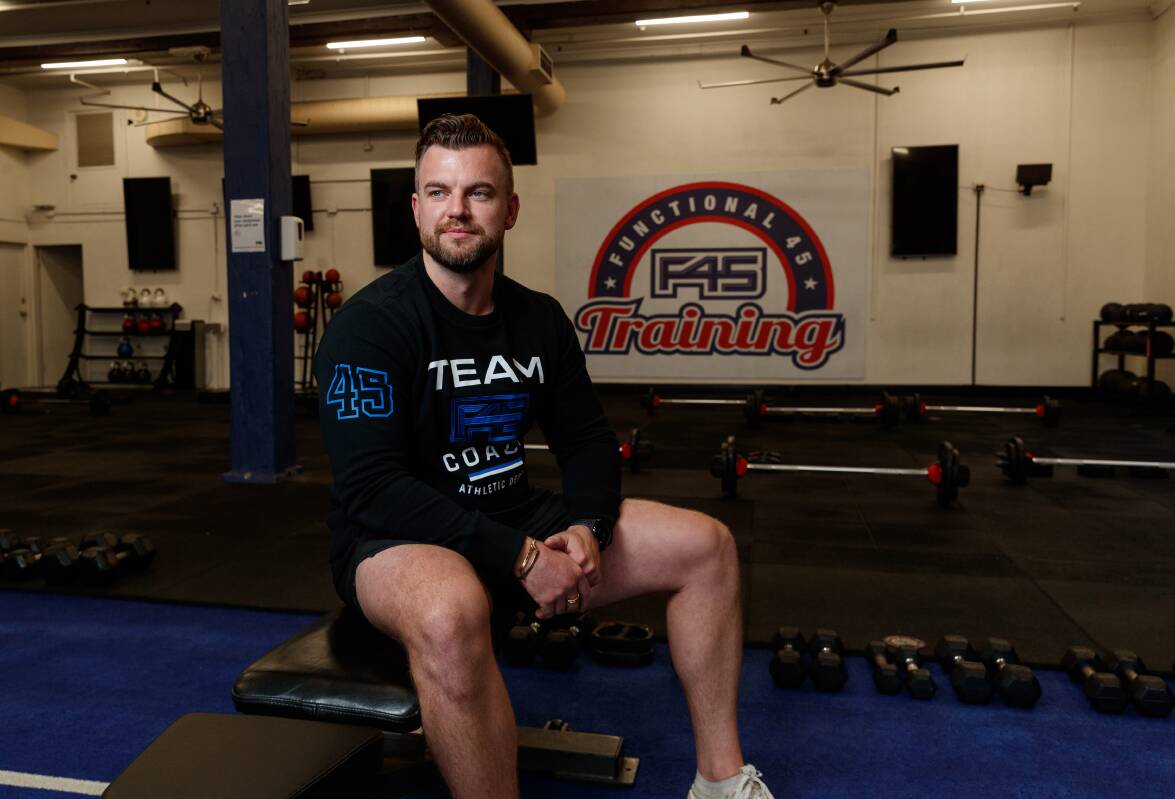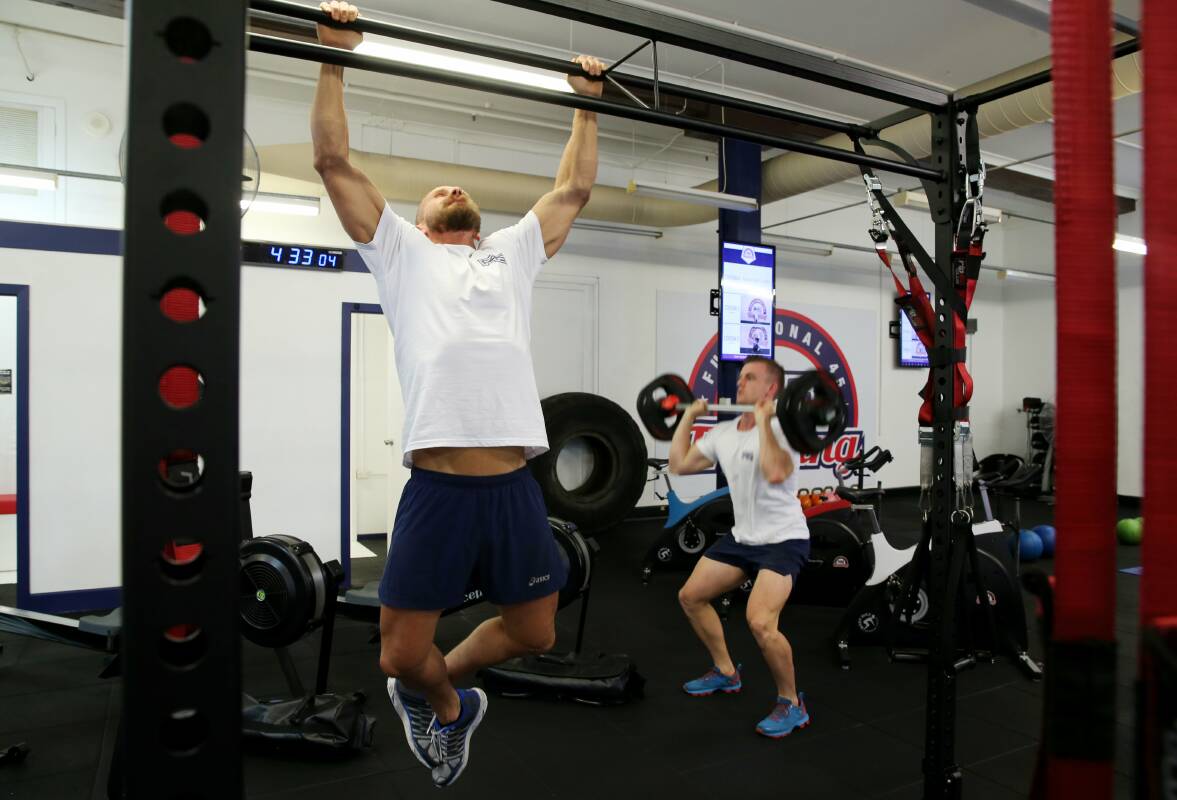HUNTER franchise owners of F45 gyms have hosed down the financial turmoil of their counterparts in the United States, saying it is business as usual as they rebuild from the "huge struggle" of the pandemic.
In a video conference call on Thursday, the interim CEO of the Australian-founded fitness franchise, Ben Coates, reassured F45 franchisees following the announcement by its US head office that it was aborting plans to roll out 1500 new franchises.
Instead, the company, of which US actor Mark Wahlberg owns 26 per cent, is now aiming to open up to 450 studios. It has also slashed its forecast revenue from $275 million to $130 million this financial year.
Laying off 110 staff as co-founder and CEO Adam Gilchrist stepped down, the company said "changing macroeconomic and business conditions" were to blame as its share price plummeted on the New York Stock Exchange.
Launched by Rob Deutsch [who left the company in 2019] and Gilchrist in 2011 with its first studio in Paddington, Sydney, F45 is based on a 45-minute session that combines high-intensity interval training (HIIT), functional training and circuit training.
F45 has more than 1500 franchise centres and has more than 10 Hunter studios operating between Toronto and Singleton, with a collective membership base of around 2000.

Kotara F45 owner Margot Jackson and Jordan Nisbet, who owns five F45 franchises throughout Newcastle and is poised to open his sixth, said the video appearance of Mr Coates was reassuring.
"He has stated that recent changes will set up F45 for growth in the long term. There will be no impact on studio operations and the entire HQ team are here to support the franchise network," Ms Jackson said.
Ms Jackson, who bought her Kotara franchise in 2017 and last year opened a studio of its sister brand FS8 nearby, said that when F45 floated on the NYSE it had had no impact on the Australian operations.

"It was something that was happening over there and we just got on with doing what we do best," she said.
"The news of last week was the share prices dropping, but there wasn't an immediate impact in our studios, we operate not keeping headquarters at a distance, but when you run your own small business it's best to look after your own backyard."
Ms Jackson welcomed the executive restructure following what she described as a "huge struggle" since the pandemic sent gym operations into mayhem with multiple lockdowns since 2020.
"I welcome this change, we needed to shift the focus away from franchise sales and back on the core values of the brand and supporting the existing franchisee network," she said.
"News that the company will be laser focused on studio performance, franchisee support and membership growth is long overdue - I'm really looking forward to what's ahead."
Mr Nisbet, who is currently fitting out his sixth studio in the Hunter, said the fallout in the United States had "not made any difference" to his operations.
"We just do our thing and pay our franchise fees and we get updates from head office," he said.
Mr Nisbet said the 110 jobs axed had been spread between the US and Australia as the company moved to pare back in tough economic times.
"They are focusing on the brand rather than expansion and growth," he said.
Mr Nisbet said he had had a lot of enquiries from his members who wanted to know what was happening to the brand.
"It's not good for the stock price but as far as operating, it's not bad. We've noticed no difference on the ground and they [head office] are focusing in what we are delivering because there is a lot of competition now in HIIT training - I mean, F45 was like the unicorn that started it all [HIIT].
"They are returning to do what they do they best."
Mr Nisbet, who also has two FS8 franchises at The Junction and Warners Bay, said he was confident in the business and brand as it recovered from the pandemic: "We know it's strong and that they are good at what they do and the whole fitness industry has taken a hit in the last two years, it's just that this one [F45] is listed and you see it in the news."
Ms Jackson said that the fitness industry was still recovering from the temporary closures in lockdowns as they scrambled to deliver workouts online.
"We moved our workouts to everyone's lounge-rooms, we hired out equipment, we maximised the government rebates but I think it's important to say that it's built on our community which banded together to support local businesses during a tough time," she said.
"But we haven't returned to pre-COVID numbers, it's been a struggle, and now we have labour shortages as our biggest struggle. It's been one thing after another."
Daryl Bailey, who was one of the first Hunter F45 investors when he opened a studio in Green Hills six years ago, then another in Rutherford two years ago, said that F45's appeal would continue.
"Its selling point is that it's been a leader in the HIIT workouts, combining all the best facets into an awesome workout, we combine it with the best trainers we can find to deliver it, they don't have ego or attitudes and we get the feedback from our members that it's a comfortably place for anyone to work out, regardless of their fitness," he said.
"Nothing within our studios and what we do and delivering what we do to our members has changed because of this [the US scaling back], it's all in the higher echelon of the business.
"These things have happened given the current climate and what we do on a daily basis hasn't changed, it's probably just reinforced what we do and giving us a stronger presence to move forward."
"The pandemic was tough on all small businesses and I think now we are coming out the other end of that and pushing past the flus and COVID and we are getting stronger and stronger each day."
WHAT DO YOU THINK? We've made it a whole lot easier for you to have your say. Our new comment platform requires only one log-in to access articles and to join the discussion on the Newcastle Herald website. Find out how to register so you can enjoy civil, friendly and engaging discussions. Sign up for a subscription here.







